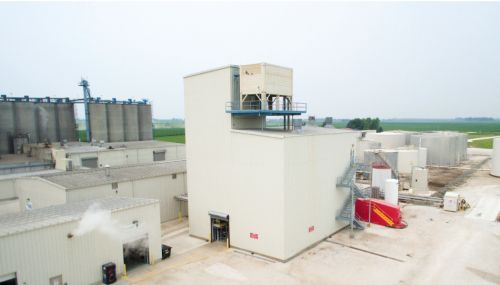All
Succeed With Propane

Cota, Heffron offer tips on tank ownership, supply management
Heating oil dealers can strengthen their businesses by adding propane sales, but they need to be prepared to do a few things differently. That is the message delivered by Sean Cota, of Cetane Associates, and Steve Heffron, of Ray Energy, during a NEFI Expo 2015 seminar.
Propane sales fit well into many heating oil businesses because of the similarities and synergies. Dealers already understand fuel delivery, and they will find propane regulations similar to those they know from selling petroleum. They can also strengthen their companies by doing more business with current customers and preventing those customers from shopping elsewhere. Propane sales also diversify the company’s financials and increase company value over time.
Propane also offers a growth path to companies, many of which are experiencing declining heating oil sales. Propane prices are facing downward pressure due to increasing production in the regions of the Marcellus Shale and the Utica Shale, and marketers can achieve good margins if they pay attention to the details, the presenters said.
A Big Investment
Unlike heating oil sales, propane is a capital-intensive business that takes time to deliver return on investment. “It will cost you $50 to show up at the customer’s house, and propane has a lot of small deliveries,” Cota said. When you first start “all customers will cost you money,” he added. “You’re not going to make any money for years.”
One key to success is training current employees on propane to avoid duplicating service costs. It is also critical to keep excellent records regarding safety and ownership of tanks in the field. “You need to be able to show that you followed all the protocols. You can do a gas check, but it you don’t document it, no one knows you did it,” Heffron explained.
Cota recommends that companies install their own bulk propane plants rather than using throughout agreements and recommended that they cultivate good relationships with local fire chiefs, because they decide who can get a permit for a bulk plant.
One of the first decision a new propane marketers faces is whether to own or lease customer tanks. “You want to own the tanks, because that gives you a much better relationship with the customer and keeps it sticky,” Cota said. Disputes can arise over tank ownership, so it is important to record tank serial numbers and not merely place a company sticker on the tank. “You can always do a snatch-and-grab, but you may wind up in court,” Cota said. “Paperwork and customer agreements are key.”
New Supply Dynamics
Supply security is harder to achieve with propane than heating oil, because there are fewer supply points in the Northeast, and marketers can wind up driving to the Midwest to get supply if they can’t secure it close to home. Heffron explained that waterborne propane imports in New England have dwindled in recent years due to the low cost of domestic propane.
The supply point in Selkirk, N.Y., used to bring propane in by pipeline from Mont Belvieu, Texas, but the pipeline now acquires propane via injections at Todhunter, Ohio. The transit time is less now, and pipeline allocations are less likely, according to Heffron.
He recommended that marketers take care to diversify and balance their supply contracts with some pipeline and some rail to ensure access at all times. Rail-based terminals are increasing in New England, and the region now receives 90 percent of its propane by rail.
Heffron recommended that marketers protect their supply by building storage equivalent to a week’s supply or more. “If you can get a permit for a 30,000-gallon tank, get another one too. It is easier than reapplying,” he said.
Related Posts
 Why Quality Matters in Your Biofuel Blends
Why Quality Matters in Your Biofuel Blends
Posted on June 25, 2025
 Incorporating Higher Blends of Biofuels
Incorporating Higher Blends of Biofuels
Posted on May 14, 2025
 NORA Programs at Eastern Energy Expo
NORA Programs at Eastern Energy Expo
Posted on May 13, 2025
 March Short-Term Energy Outlook
March Short-Term Energy Outlook
Posted on April 28, 2025
Enter your email to receive important news and article updates.
